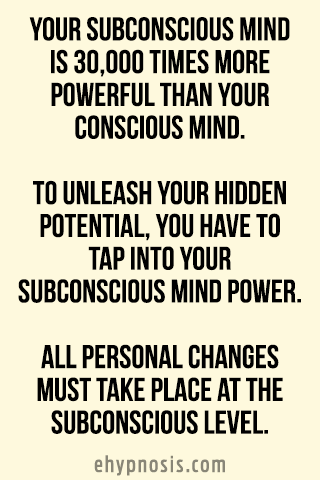
Do have any behavioral traits, habits or emotional responses that you'd like to change?
Ones that you know that could drastically improve your life?
Things like quit smoking, learning to relax, boosting your energy, overcoming stress and anxiety? Things like feeling confident in front of a crowd, losing weight or getting a good night’s sleep?
It could be anything at all!
Perhaps you've reached a point where you find yourself dismissing things that could help you change to get the results you want. If this picture sounds familiar, don't throw the towel in just yet because hypnosis might be the tool you need to finally make real changes.
While there are many misleading claims about how hypnosis works and what it can achieve, it is a powerful way to make long-lasting changes. As a bonus, it’s something you can even learn to do at home.
In this hypnosis article, we'll take a look at exactly what hypnosis involves.
We'll debunk stereotypes and outline what happens at every key stage of the process. We’ll also consider potential safety risks alongside the major scientifically proven benefits of hypnotherapy, and explain how you can start your hypnotherapy journey today.
Hypnosis Definition: A Simple Explanation

it is a form of relaxation therapy that makes you more susceptible to positive suggestions.
Through hypnosis, you enter a "hypnotic trance.” This is a profoundly deep level of focus in which your attention, awareness and openness are all enhanced.
In other words, when you are hypnotized, you are receptive in a way that allows you to circumvent the limiting beliefs and defense mechanisms that hold you back when your conscious mind is at the fore. You feel completely relaxed in both body and mind.
However, you are in full control of yourself and your faculties at all times, and you are not asleep.
It feels a lot like daydreaming or meditating, so most people find it enjoyable and restorative. Like meditation, hypnotherapy involves setting a clear goal, while daydreaming is typically more spontaneous.
As we'll explore in more depth below, hypnosis can be used to change a wide range of habits and negative experiences. For example, it is commonly used to help with self-esteem, weight loss, phobias, smoking cessation, insomnia, and certain forms of chronic pain.
However, in principle hypnosis can be used to assist with just about any issue that has a psychological component and involves counterproductive thinking patterns. There’s no limit to what it can achieve if you commit to positive change.
Some people find that one session is sufficient to help them feel or think differently, while others need a longer course of hypnotherapy.
It’s also common to use "top up" sessions to maintain positive changes.
Most people who use hypnotherapy recordings report at least some improvement within about three weeks. Many begin with daily sessions, gradually reducing to weekly or fortnightly.
The 3 Stages of Hypnosis
It is easier to understand hypnosis if you think of it as involving three distinct stages.
There is an induction phase that prepares your mind and body to enter the hypnotic trance, there is the stage at which you enter the hypnotic trance itself, and then there is a final part that involves receiving specific suggestions that facilitate your goal.
During all of these phases, you will be conscious and able to end the process if you wish too. However, electroencephalography studies on brain activity show that your level of awareness may differ at each stage. You are at your most receptive and relaxed in the final, deepest stage of hypnosis.
At this point, your brain is in what is called the alpha state.
Let's take a closer look at the three key phases of hypnosis, and at what you can expect to experience at each point.
Stage 1: Hypnotic induction

During the hypnotic induction stage itself, you assume a comfortable and relaxing position and close your eyes. It's common to lie down on a sofa or on your bed, but if you prefer to sit upright then this can also work.
Part of the induction involves preparing yourself to enter the trance, and one way of priming your body and mind is to take deep breaths in and out.
For example, you might inhale for a count of five, and exhale for a count of seven. Some people find it helpful to use an app that shows a soothing image alongside instructions to inhale and exhale.
Some hypnotherapists also offer a script that guides you into this preliminary stage of relaxation.
When you are more experienced, you can even try writing your own script or adapting one you’ve previously used.
Stage 2: Hypnotic State

You will be more aware of your surroundings, rather than less, and you will be able to turn sharp focus to whatever you choose.
You will use this focus to hone in one what you want to understand or change about yourself.
Your body will also be extremely relaxed, and your limbs may feel loose and heavy. A sense of calmness will pervade, and most people find this enjoyable.
In addition to facilitating change, it can help you release stress.
Stage 3: Hypnotic Suggestion

Different approaches to hypnotherapy present such suggestions in different ways. For example, classical hypnosis involves commands (e.g. "You feel confident" or “You no longer want to smoke”), while more modern methods can use metaphorical images or other less direct suggestions.
For example, an approach called NLP Future Pacing helps you to visualize how you will respond the next time the negative thinking habit is triggered. It is a way of rewriting your responses. Other methods embed hypnotic suggestions in longer sentences to help the suggestions circumvent your conscious mind.
Once the suggestions have been made and internalized, you will be instructed to slowly emerge from the hypnotic trance and return to your normal form of consciousness. It’s good to do this slowly and gently, as rapid emergence from a hypnotic trance can feel shocking.
Is Hypnosis Safe?
Given the myths about hypnosis, it's understandable that you might feel apprehensive about trying it.
We'll explore potential risks to your health, and then we'll move on to consider whether hypnotherapy is safe (physically and mentally).
Firstly, it's important to note that research on hypnotherapy typically shows benefits for most types of people, regardless of their medical background.
This means that hypnosis is generally regarded as a safe procedure - an evaluation reflected in its endorsement by agencies like the American Medical Association. Current studies suggest that epilepsy and schizophrenia the only background conditions that might make hypnosis an inappropriate type of therapy for you.
If either of these diagnoses apply to you, then ask your doctor for their thoughts on whether hypnosis is appropriate. In many cases, it will be fine with some extra supervision or care.

You may also be wondering about whether hypnosis ever causes dangerous side effects. As it stands, there are a small number of people who report experiencing intense dreams after hypnotherapy, but this is not only a safe side effect but also a potentially beneficial one. You may learn more about yourself and your subconscious mind through these dreams.
Meanwhile, some people say that they continue to feel sleepy for an hour or so after hypnotherapy, but many such individuals say that this an enjoyable result. It simply gives you a good reason to schedule your hypnosis at a time when it's appropriate to relax—for example, before bed or during a quiet evening.
Finally, it is important to be aware that hypnotherapy is not a substitute for treating diseases and physical impairments. While hypnosis can be a helpful complementary therapy during times of illness, it will not cure purely physical problems on its own.
What Hypnotherapy Is Not
As noted above, it's common to worry about your freedom and autonomy when first considering hypnosis. Consequently, it's vital to be clear about what hypnosis is not. Most importantly, movies commonly misrepresent hypnosis, showing as it a way to gain control over others. In truth, hypnosis can't make you do anything that you don't want to do.
For one thing, you retain awareness of your surroundings throughout, so you can end the process at any time. You are not asleep, and in fact, your focus is heightened during hypnosis.
It’s also worth noting that hypnosis doesn’t require any specific medication, so you won’t be physiologically sedated.
Secondly, you are not susceptible to suggestions that aren't in line with your overall values and goals, so no one can use hypnosis to turn you into a different person or make you act in ways contrary to your nature.
Hypnosis is all about changing attitudes and feelings that aren’t working for you, helping you to evolve into your best self.

If someone tries to ask or suggest something that makes you uncomfortable, you will simply emerge from hypnosis and are free to remove yourself from the situation.
Relatedly, perhaps you've wondered if it's possible to become "stuck" in a hypnotic trance. This is a frightening idea, similar to entering a coma. Happily, this is once again impossible due to the degree of control that you have over your situation. No one has ever been stuck in a trance in a hypnotherapy session.
At any time you want, you can come out from the hypnotic trance and fully re-engage with the world around you.
Finally, one positive misconception that people have about hypnosis is that it can cure or change absolutely any aspect of negative thinking with minimal effort. However, you have to want to change something in order for hypnosis to help, and it doesn't remove the need for future work and active growth on your part.
It merely helps you stick to your goals, change your beliefs and increase your motivation.
Science-Backed Benefits Of Hypnosis
Hypnosis is an evidence-based practice that is well-supported as a treatment for a wide range of counterproductive thinking habits. For example, studies show that hypnosis is effective at treating the following:
Habits: When we repeat specific behaviors, they become ingrained and we develop a range of triggers that make us want to repeat these habits.
For example, people who over-eat might be triggered by stress, boredom and loneliness.
Hypnotherapy can help you locate and neutralize triggers not only for over-eating but also for smoking, drinking, compulsive gambling, and avoiding tasks.
Phobias: If you developed a phobia early in life, it may be especially hard to recall its origin or get rid of your fear. Through hypnosis, such irrational thoughts and associations can be deconstructed and adapted.
For example, if you're scared of flying, particular medical procedures, emotional intimacy or public speaking, hypnosis can help you move beyond these phobias.
Low self-esteem: People with low self-esteem typically have a very active "inner critic"--a voice that says they're not good enough, that they're bound to fail, and so on. Hypnosis can help you change the way you talk to yourself, not only removing negative self-talk but also encouraging positive, self-reinforcing self-talk. This can have a knock-on effect on everything from body image to decision-making and career success,
Anxiety: If you worry too much (whether in general about specific things), hypnosis can also help you develop a more relaxed attitude about your particular triggers. Anxiety often holds us back from taking healthy risks, so tackling it in this way can help you move forward in your personal development.
Health problems: Any health condition with a psychological component is a candidate for being helped by hypnosis. For example, if you have difficulty sleeping, hypnotherapy can help you rewrite the beliefs and worries that create a negative cycle around sleep. Certain headaches, sexual dysfunctions and forms of hypochondria can be improved in similar ways. Hypnotherapy can also alter the subconscious processes that lead to grinding your teeth at night bruxism).
Certain headaches, sexual dysfunctions and forms of hypochondria can be improved in similar ways.
Can I Be Hypnotized?

For example, you may have an idea that if you have a "strong mind" or are highly logical then you will not be susceptible to hypnosis - even when you want to be.
Alternatively, you may worry that you won’t be able to relax enough to enter a hypnotic trance. If you’re often stressed, you might think this will block receptivity. In short, perhaps you imagine that your mind will just “reject” your attempts to calm it.
So, is it true that certain individuals are simply immune to being put into a hypnotic trance? In order to see why this is implausible, it's helpful to broaden your preconception of what hypnosis involves.
Specifically, up to 85% of us regularly enter into a mild form of a hypnotic trance (perhaps even every day) when we tune into something we're interested in. This might be a piece of music, some work you're doing, or a novel. You'll likely know the feeling - it's as though the world around you narrows, and you have a laser-sharp focus on one thing.
Something similar happens when you begin to wake up or fall asleep. At this time, you enter a very light, relaxed trance called the Alpha state.
When you're in this type of state, your subconscious mind is much more open to suggestion.
Research indicates that you may be up to 200 times more receptive to what you hear, if it’s in line with your fundamental values and desires. Even if you’re stressed before a session, a quick breathing exercise can put you in a more receptive state.
In summary, the commonality of this experience means that it's highly likely that you can be hypnotized. In fact, research on hypnosis indicates that roughly 93-95% of people can be hypnotized with ease, which means that they enter into a hypnotic trance relatively quickly.
This group of people often share a range of traits in common, including a propensity for daydreaming, a high level of empathy and an interest in learning. Some studies even suggest that people who are smarter than average are in the Alpha state during many of their waking hours.
If one or more of the above characteristics describe you, then there's a good chance that you will be relatively easy to hypnotize.
Getting Started on Your Hypnotherapy Journey
Now that you know more about what hypnosis involves and what it can help you achieve, you can start your hypnosis journey anytime you like. Self-hypnosis is a convenient, powerful and personalized way to reach your goal - you can do it entirely on your own schedule, and in the privacy of your own home.
There is a huge range of different programs that can help you to overcome common difficulties. All the hypnosis downloads and programs are easy to follow, effective and highly specific, so we're sure the library of programs will offer something that suits you. Whether you're struggling to lose weight, wanting to boost your presentation skills, battling a fear of flying and feeling sick of your self-critical thoughts, we can help make it possible for you to finally reach your goals.





